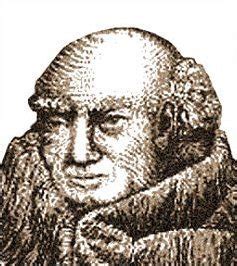A Quote by Margaret Thatcher
We do not believe that if you cut back what government does you diminish its authority. On the contrary, a government that did less, and therefore did better, would strengthen its authority.
Quote Topics
Related Quotes
I believe in the separation of powers. If a judge crosses the line between interpreting and making the law, he has crossed the line supporting his legitimate authority from the legislative branch's authority. Now, to me that's a very serious matter if we believe, as America's founders, did that the separation of powers - not just in theory or in textbook but in practice in the actual functioning of government - is the linchpin of limited government and liberty.
Government is necessary, but the only rights we can delegate to government are the ones we possess. For example, we all have a natural right to defend ourselves against predators. Since we possess that right, we can delegate authority to government to defend us. By contrast, we don't have a natural right to take the property of one person to give to another; therefore, we cannot legitimately delegate such authority to government.
Government is not infallible. Government is only an executive control, a centralized authority for the purpose of expressing the will of the people; before you have a government you must have the people. Without the people there can be no government. The government must be, therefore, an expression of the will of the people.
To centralize power in the name of freedom is akin to putting a crime syndicate in charge of rooting out corruption. It is the normal state of politics that the more centralized it is, the more damage it does. Fast-track authority [for government-to-government trade agreements] centralizes power and is therefore part of the problem.
f you analyze it I believe the very heart and soul of conservatism is libertarianism. I think conservatism is really a misnomer just as liberalism is a misnomer for the liberals - if we were back in the days of the Revolution, so-called conservatives today would be the Liberals and the liberals would be the Tories. The basis of conservatism is a desire for less government interference or less centralized authority or more individual freedom and this is a pretty general description also of what libertarianism is.
Transcendentalism is, we might say, an early form of anarchism. The Transcendentalists also did not call themselves anarchists, but there are anarchist ideas in their thinking and in their literature. They were all suspicious of authority. We might say that the Transcendentalism played a role in creating an atmosphere of skepticism towards authority, towards government.
We must, therefore, emphasize that 'we' are not the government; the government is not 'us.' The government does not in any accurate sense 'represent' the majority of the people. But, even if it did, even if 70 percent of the people decided to murder the remaining 30 percent, this would still be murder and would not be voluntary suicide on the part of the slaughtered minority. No organicist metaphor, no irrelevant bromide that 'we are all part of one another,' must be permitted to obscure this basic fact.
...[sacred] doctrine is especially based upon arguments from authority, inasmuch as its principles are obtained by revelation: thus we ought to believe on the authority of those to whom the revelation has been made. Nor does this take away from the dignity of this doctrine, for although the argument from authority based on human reason is the weakest, yet the argument from authority based on divine revelation is the strongest.
For authority proceeds from true reason, but reason certainly does not proceed from authority. For every authority which is not upheld by true reason is seen to be weak, whereas true reason is kept firm and immutable by her own powers and does not require to be confirmed by the assent of any authority.









































